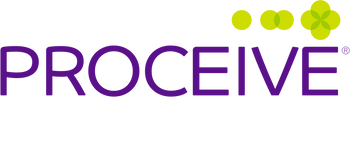Age is the strongest factor influencing egg quality, but it is not the only one. Nutrition, lifestyle, and targeted supplementation can all impact oocyte development and because eggs take around three months to mature before ovulation, this window offers an opportunity for meaningful intervention.
Why Egg Quality Matters
Egg quality is central to fertility, affecting fertilisation, embryo development, and the likelihood of a healthy pregnancy. With age, eggs naturally become more prone to oxidative damage and chromosomal errors. While age itself cannot be modified, optimising the environment in which eggs mature can make a difference to outcomes.
Nutrition and Lifestyle Interventions
Balanced diet with a focus on low GI foods
-
Stabilising blood glucose and insulin is important, even outside of PCOS.
-
A diet rich in wholegrains, vegetables, legumes, lean proteins, and healthy fats helps keep insulin levels steady and supports hormone balance.
Antioxidant-rich foods
-
Eggs are sensitive to oxidative stress, which can impair DNA and mitochondrial function.
-
Encourage patients to eat a wide variety of colourful fruits and vegetables, along with nuts and seeds, to boost antioxidant intake.
Exercise
-
Regular physical activity helps improve insulin sensitivity and circulation, which may benefit ovarian health.
-
A combination of aerobic and strength-based activity is recommended.
Stress and sleep
-
High stress levels and poor sleep can affect the hypothalamic–pituitary–ovarian axis, disrupting hormone regulation.
-
Support patients to prioritise good sleep hygiene and consider stress-reduction techniques such as mindfulness or yoga.
Lifestyle risks
-
Smoking, excessive alcohol, and high caffeine intake can negatively impact egg quality.
-
Reducing or eliminating these exposures can improve the overall reproductive environment.
The Role of Supplementation
Alongside diet and lifestyle, specific supplements may support egg quality and overall reproductive health:
-
Folic acid – essential for DNA synthesis and universally recommended preconception. At Proceive we use the methylated form, L-methylfolate for increased absorption.
-
Vitamin D – important for reproductive health and immune function; deficiencies are very common.
-
Omega-3 fatty acids – help reduce inflammation and support cell membrane function.
-
Coenzyme Q10 (CoQ10) – may support mitochondrial energy production, particularly relevant for egg development.
-
Antioxidants (vitamins C & E, selenium, zinc) – help reduce oxidative stress, which is a key contributor to egg ageing.
Practical Takeaway for HCPs
Egg quality is strongly influenced by age, but it is also shaped by nutrition, lifestyle, and supplementation. With a 90-day maturation period before ovulation, women have a window to make meaningful changes that can positively influence reproductive outcomes. Guiding patients towards a balanced diet, regular activity, stress management, and appropriate supplementation can help create a healthier environment for egg development and improve their chances of conception.

